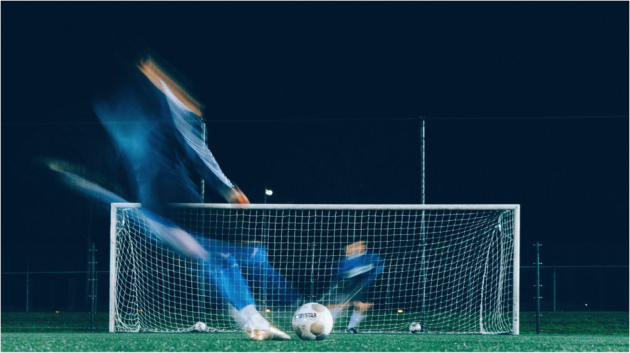
The Success Story of Latin American National Teams in the World Cup
08 November, 2024Football is more than just a sport in Latin America; it is an integral part of the culture, uniting entire nations. Latin America has given the world some of the greatest football players, and the history of its national teams in the World Cup is truly impressive. Since the first tournament in 1930, Latin American teams have become some of the most successful and respected teams on the world stage. They have showcased a spectacular, attacking style of play that has captivated millions of fans worldwide.
For those looking to add excitement to watching matches, there are many betting platforms, including https://melbet-nz.nz/en/line/football. Melbet offers a wide range of bets on World Cup matches and other international tournaments. From match outcomes to detailed events like the number of goals, halftime results, or individual player stats, the platform’s user-friendly interface and wide range of options make it easy for both beginners and experienced bettors to place bets and support their favorite teams from Latin America and beyond.
The First Steps: The 1930 World Cup and Uruguay’s Victory
The first chapter of Latin American success at the World Cup began in 1930 when Uruguay hosted the inaugural FIFA tournament. As hosts, they performed brilliantly and became the first world champions. Uruguay’s victory was a historic event that solidified Latin America’s status as a football powerhouse. The tournament’s final match was a true football celebration, as Uruguay defeated Argentina 4-2. This triumph was not just a sports victory but an act of national pride, inspiring a whole generation of young footballers across the continent.
Uruguay’s Comeback and the Second Title (1950)
Uruguay’s next significant success at the World Cup came in 1950 in Brazil. This tournament is famous for the legendary “Maracanazo”—the final match between Uruguay and Brazil at the Maracanã Stadium before 200,000 fans. Although Brazil was the favorite, Uruguay made an extraordinary comeback, winning 2-1 and claiming their second world title. This triumph was not only a sports achievement but also a source of immense national pride, once again proving the strength of Latin America’s football spirit.
Brazil’s Rise and the “Golden Age” of Football (1958-1970)
In the late 1950s and early 1960s, a new star rose on the football horizon—the Brazilian national team. The 1958 World Cup marked a breakthrough for Brazil. This was the debut of Pelé, who became a symbol of Brazilian football. Brazil won the final against Sweden 5-2, becoming the first South American team to win the World Cup outside their continent. A unique style was born during this tournament—an attacking, fast, and skillful approach that made Brazilian football famous. Brazil repeated their success in 1962 in Chile and again in 1970 in Mexico. This period became known as the “Golden Age” of Brazilian football, showcasing the team’s incredible skill and determination.
The victory in the 1970 World Cup made Brazil the first three-time champion in football history. This success earned the team worldwide fame and established them as a football legend. The 1970 tournament became iconic for Pelé, who is now recognized as one of the greatest players of all time.
The Argentine Miracle (1978 and 1986)
Latin American success continued in the late 1970s. In 1978, Argentina hosted the World Cup for the first time and seized the opportunity. In a tense final against the Netherlands, Argentina won 3-1, claiming their first world title. The Argentine team demonstrated incredible team spirit and tactical organization, and their victory at home was a major milestone for Argentine football.
Argentina claimed their second title eight years later at the 1986 World Cup in Mexico. This was largely due to the outstanding play of Diego Maradona, who displayed phenomenal skills and provided Argentina with many unforgettable moments. Maradona’s two goals in the quarterfinal match against England—the famous “Hand of God” and the “Goal of the Century,” where he dribbled through nearly the entire opposing team—brought him immense fame. Argentina defeated West Germany 3-2 in the final, becoming a two-time world champion and further proving the strength of South American football.

Brazil’s Dominance in 1994 and 2002
After a 24-year hiatus, Brazil returned to the top of world football in 1994, winning the tournament in the USA. This time, Brazilian stars Romário and Bebeto showcased fantastic attacking play. The final against Italy was the first World Cup match to be decided by a penalty shootout. Brazil won 3-2 on penalties, becoming four-time world champions.
Brazil’s next World Cup victory came in 2002 in Japan and South Korea. This tournament was marked by Ronaldo’s outstanding performance, who scored eight goals and became the tournament’s top scorer. Brazil defeated Germany 2-0 in the final, winning their fifth world title—a record that remains unbeaten. This success reinforced Brazil’s reputation as one of the greatest teams of all time.
Modern Successes and Challenges
In the 21st century, Latin American teams remain strong contenders on the world stage. Under the leadership of Lionel Messi, Argentina reached the World Cup final in 2014 but lost to Germany in extra time. Although Latin America has not won a World Cup title in recent years, its teams continue to be among the main contenders for victory, and their fans still believe in another triumph. You can also support your team by placing bets on Melbet, where, in addition to sports, you can play casino slots online with a variety of options: from classic slot machines to modern video slots with colorful graphics and exciting bonus rounds.
The 2022 World Cup was particularly symbolic, as Argentina achieved historic success again by defeating France in a tense final on penalties. This triumph became the pinnacle of Lionel Messi’s career, as he finally led his team to victory and solidified Argentina’s status as one of the greatest football nations.
Follow Sounds and Colours: Facebook / Twitter / Instagram / Mixcloud / Soundcloud / Bandcamp
Subscribe to the Sounds and Colours Newsletter for regular updates, news and competitions bringing the best of Latin American culture direct to your Inbox.

